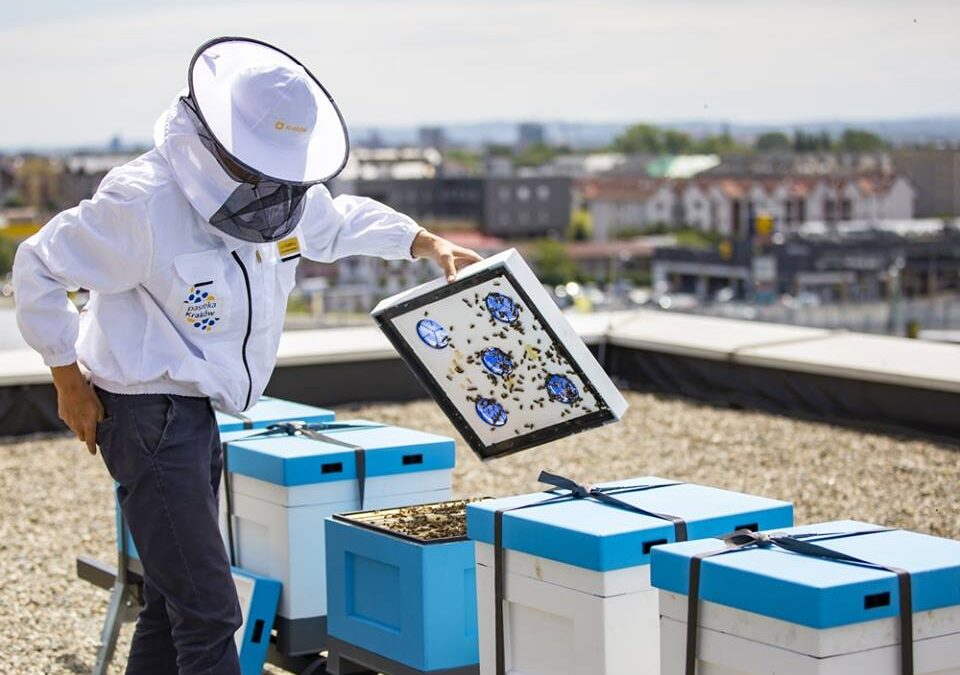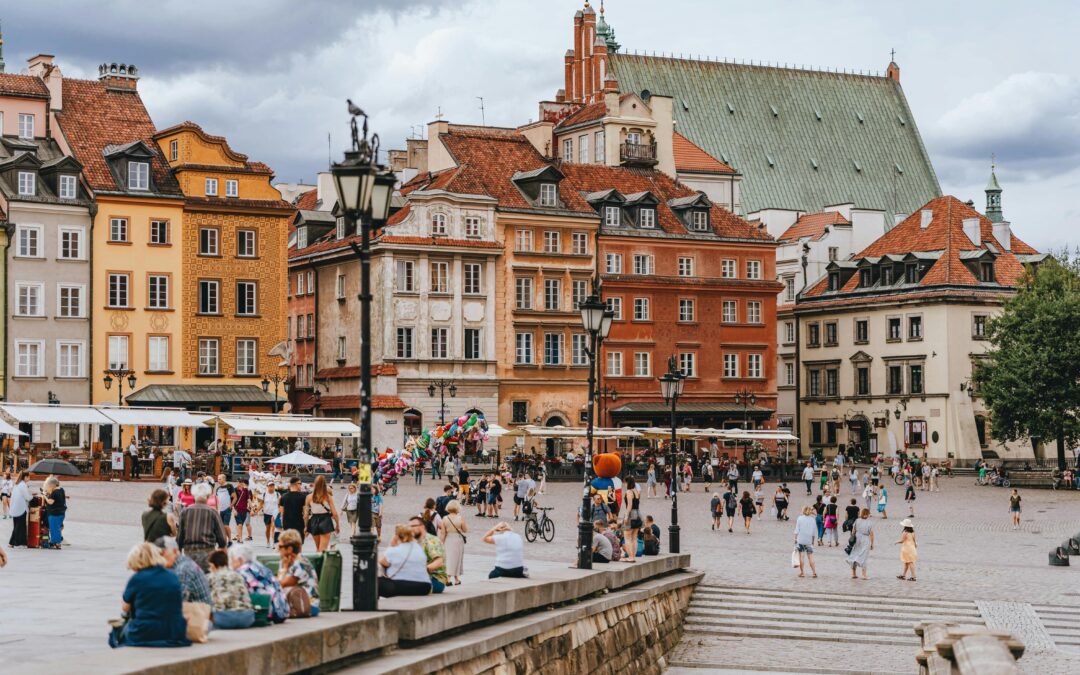The latest set of beehives are being installed on a rooftop in Kraków, as part of a scheme to create urban apiaries in the city. Similar projects have sprung up in other municipalities around Poland, with bees providing environmental benefits as well as honey for locals.
In 2017, the Pasieka Kraków (Kraków Apiary) scheme was launched to facilitate the creation of hives on buildings across the city. Among the locations where they have been installed so far are the 19th-century Juliusz Słowacki Theatre and AGH University of Science and Technology.
#Krakow #PasiekaKraków Kraków jako pierwsze miasto w Polsce zdecydował się założyć własne pasieki. Najpierw ule pojawiły się 2 lata temu na dachu @NCKnh , a kolejne na dachach Centrum Administracyjnego i Obsługi Mieszkańca, Domu Erazma, ZBK oraz Centrum Obsługi Mieszkańców. pic.twitter.com/tsixCykQyM
— Kraków (@krakow_pl) July 29, 2019
Now the city’s Volvo Car PGD showroom is the latest to join the scheme, with its roof set to host five hives. They will be home to a species of bee chosen for its mild temperament and for being adapted to living in cities, reports Glos24.
“[Bees] are one of the most important and useful insects in the world,” Tomasz Rytwiński, the director of the PGD group, told Gazeta Wyborcza. “Humans rely on them for the production of one third of their food.”
“It is estimated that in Europe almost one in ten species of bees are threatened with extinction, and the population of 37% of species is decreasing,” he added. “Our goal is to draw the attention of Krakow residents to the importance of bees for humans and to how little is needed to support them.”
The first harvest of honey from the apiary is expected in late April or May. The showroom is currently holding a series of open days to raise awareness of the importance of bees, including educational workshops and activities.
Kraków’s scheme is supported by the city authorities. When it was launched, Ewa Olszowska-Dej, from the municipal environment department, noted that rooftop beehives were being “built in many urban areas across the globe” and that Kraków’s residents “should also be given such an opportunity”.
“We know from experts that bees even prefer the city to the countryside, because they have access to flowering trees and flowers here, but are not exposed to harmful pesticides used in agriculture,” she added.
In 2017, city councillors passed special rules to facilitate and regulate the installation of hives in Kraków. The city says that promoting beekeeping helps support pollination of flowers and other plants.
Urban rooftop beehives are also creating a buzz elsewhere in Poland. In the capital, Warsaw, there are over 1,000 apiaries, according to Gazeta Wyborcza.
Hives have been installed on the rooftops of the Wileńska, Mokotów and Arkadia shopping malls, as well as on the city’s iconic Palace of Culture and Science and on the roof of the Grand Theatre (Teatr Wielki) – where, according to their website, the honey is enriched with nectar from flowers in the nearby Saxon Gardens.
Meanwhile, an experiment in 2019 in Katowice found that bees living in hives installed on the rooftop of a building at the University of Silesia produced more honey than a similar hive in the countryside, reports Onet.
A rooftop apiary has also been installed in Gdańsk, on the Dr Oetker building. Last year, five hives were also erected in Rzeszów, on the roof of a shopping centre.
Main image credit: Pasieka Kraków/Facebook

Juliette Bretan is a freelance journalist covering Polish and Eastern European current affairs and culture. Her work has featured on the BBC World Service, and in CityMetric, The Independent, Ozy, New Eastern Europe and Culture.pl.




















